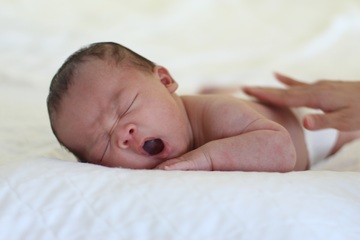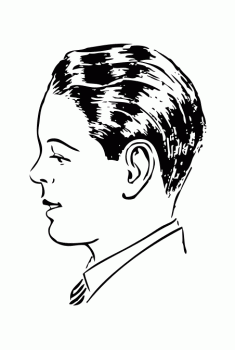Body language in Portuguese Posted by carol on Nov 30, 2019 in Culture, Customs, Learning, Vocabulary
E aí, caros leitores? What’s up, dear readers? Time to put a smile on your face because we have a new post today! A linguagem corporal (body language) is something intrinsic to our daily lives even if we don’t realize it. We are constantly communicating through our bodies and transmitting non-verbal information with our movimentos (movements), gestos (gestures) and expressões faciais (facial expressions). But I believe we do not always know what these actions are called, despite them being so present in the way we express ourselves, And this is why we are going to learn what their names are and what they mean. Vamos lá!
franzir a testa | frown
É normal franzir a testa quando estamos pensando ou com raiva.
- Percebi que a professora estava franzindo a testa enquanto lia meu texto, então acho que ela não estava muito satisfeita com minha escrita | I noticed the teacher was frowning as she read my essay, so I guess she wasn’t really pleased with my writing
corar, ficar vermelho(a)| blush
Quando as pessoas com vergonha ou constrangidas, elas geralmente coram/ ficam vermelhas.
- Seus elogios durante a reunião me fizeram corar | His compliments during the meeting made me blush
sorrir | smile
Você sorri para expressar felicidade, alegria ou receptividade
- Sorria! É sexta-feira, o fim de semana está chegando! | Smile! It’s Friday, the weekend is coming!
dar de ombros | shrug
As pessoas dão de os ombros quando não têm certeza de algo ou quando não se importam
- Pedi um aumento ao meu chefe, mas ele simplesmente deu de ombros, como se não houvesse nada que ele pudesse fazer a respeito | I asked my boss for a raise but he simply shrugged, as if to say that there was nothing he could do about it
piscar | wink
Se você está tentando flertar ou compartilhar um segredo com alguém, pisque
- Não dava para saber se Richard estava dizendo a verdade, mas então ele piscou para mim e eu sabia que era só brincadeira | I couldn’t tell if Richard was telling the truth, but then he winked at me and I knew he was just kidding
acenar | wave
Quando você está cumprimentando alguém, é comum acenar- Um homem estranho estava acenando para mim na rua, então eu simplesmente acenei de volta para ser educado | A strange man was waving at me on the street, so I just waved back to be polite
bocejar | yawn
Se você está se sentindo cansado, entediado ou com sono, você boceja
- Ontem eu estava tão exausta que não pude deixar de bocejar no meio da apresentação do gerente | I was so exhausted yesterday that I could not help but yawn in the middle of the manager’s presentation
assentir, acenar com a cabeça | nod
Sempre que você concorda com o que está sendo dito, você deve assentir ou acenar com a cabeça- Perguntei à minha mãe se eu poderia pegar emprestado o carro dela e ela simplesmente assentiu com a cabeça, então eu peguei | I asked my mom if I could borrow her car and she simply nodded, then I took it
to shake your head | balançar a cabeça
You shake your head to convey disagreement and disappointment.
- The lady at checkout shook her head when I tried to pay with my card, so I had to find an ATM | A moça do caixa balançou a cabeça quando tentei pagar com meu cartão, então tive que encontrar um caixa eletrônico
roer as unhas | to bite your nails
Se você ficar nervoso ou ansioso, é comum roer as unhas
- Eu costumava roer minhas unhas o tempo todo durante voos, mas agora eu parei | I used to bite my nails all the time during flights, but now I stopped
ficar boquiaberto | gape
Em momentos de surpresa, choque ou descrença, ficamos boquiabertos
- Os turistas ficaram boquiabertos quando viram as Cataratas do Niágara pela primeira vez | The tourists were gaping when they first saw Niagara Falls
fazer beicinho | pout
Para expressar descontentamento e decepção, você pode fazer beicinho
- Você pode fazer beicinho o quanto quiser, Charlie, mas não está assistindo TV, a menos que termine sua refeição | You can pout all you want, Charlie, but you are not watching TV unless you finish your meal
That’s it! Now put that frown upside and enjoy your week!

Build vocabulary, practice pronunciation, and more with Transparent Language Online. Available anytime, anywhere, on any device.













